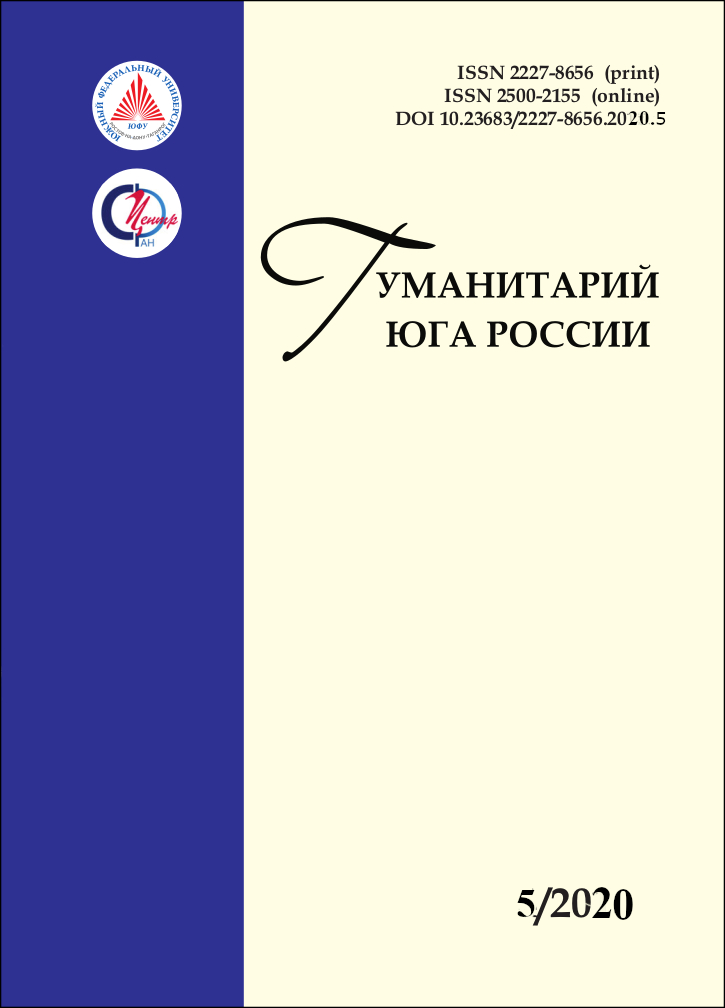Миграция в дискурсивном поле виртуальных социальных сетей: анализ контента публикаций жителей Ростовской области
Научная статья
Аннотация
Литература
Говорит Ростов. Режим доступа: https://vk.com/govorit.rostov.
Гошин И. В Ростовской области рост преступности среди мигрантов вырос кое-где почти вдвое. 29.02.2016. Режим доступа: https://www.panram.ru/news/politics/v-rostovskoy-oblasti-rost-prestupnosti-sredi-migrantov-vyros-koe-gde-pochti-vdvoe/.
Миграционный прирост // Единая межведомственная информационно-статистическая система (ЕМИСС). Режим доступа: https:// www.fedstat.ru/indicator/ 46162.
На Дону полиция накрыла сеть, которая делала мигрантам паспорта для нелегального въезда в Россию // 161.ру. Режим доступа: https://161.ru/text/criminal/ 69360031/
О внесении изменений в Федеральный закон «О гражданстве Российской Федерации» в части упрощения процедуры приема в гражданство Российской Федерации иностранных граждан и лиц без гражданства: законопроект № 938282-7. Режим доступа: https://sozd.duma.gov.ru/bill/938282-7.
Подслушали в городе Шахты. Режим доступа: https://vk.com/podslushano_shahty.
Рязанцев С.В. Интеграция мигрантов в контексте внешней миграционной политики России // Социологические исследования. 2018. № 1. С. 105–111.
Рязанцев С.В. Современная миграционная политика России: проблемы и подходы к совершенствованию // Социологические исследования. 2019. № 9. С.118–126.
Пантелеев В. Г., Печкуров И. В. Международная миграция как источник воспроизводства демографической ситуации (на примере Ростовской области) // Гуманитарий Юга России. 2020. Т. 9, № 2. С. 216–224.
Папия К. От изоляции − к миграции. Как эпидемия скажется на мобильности населения // Ведомости. 2020. 3 июня. Режим доступа: https:// www.vedomosti.ru/ opinion/articles/2020/06/03/831861-izolyatsii-migratsii.
161.ру. Режим доступа: https://161.ru.
Поступила: 23.09.2020
Опубликована: 09.12.2020






